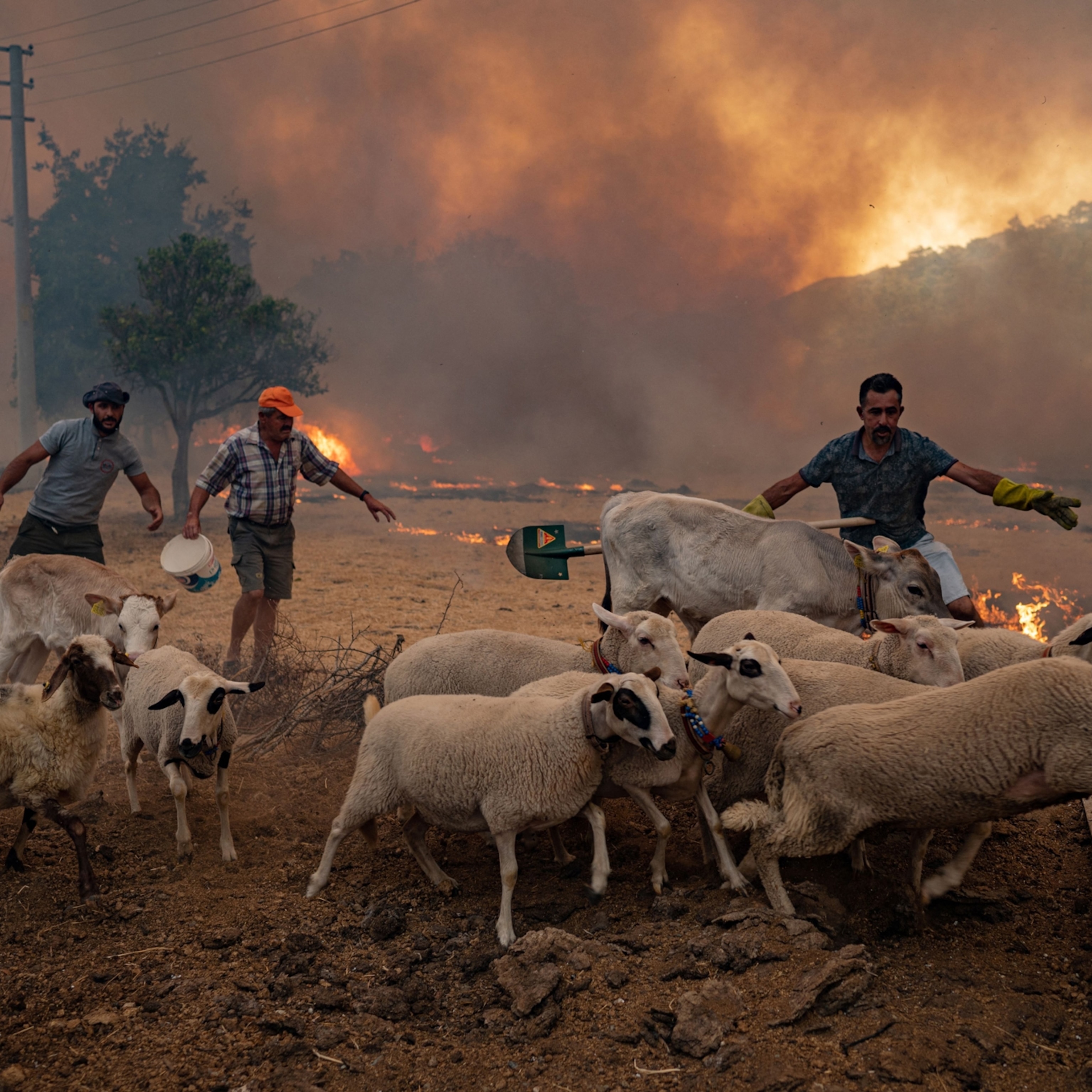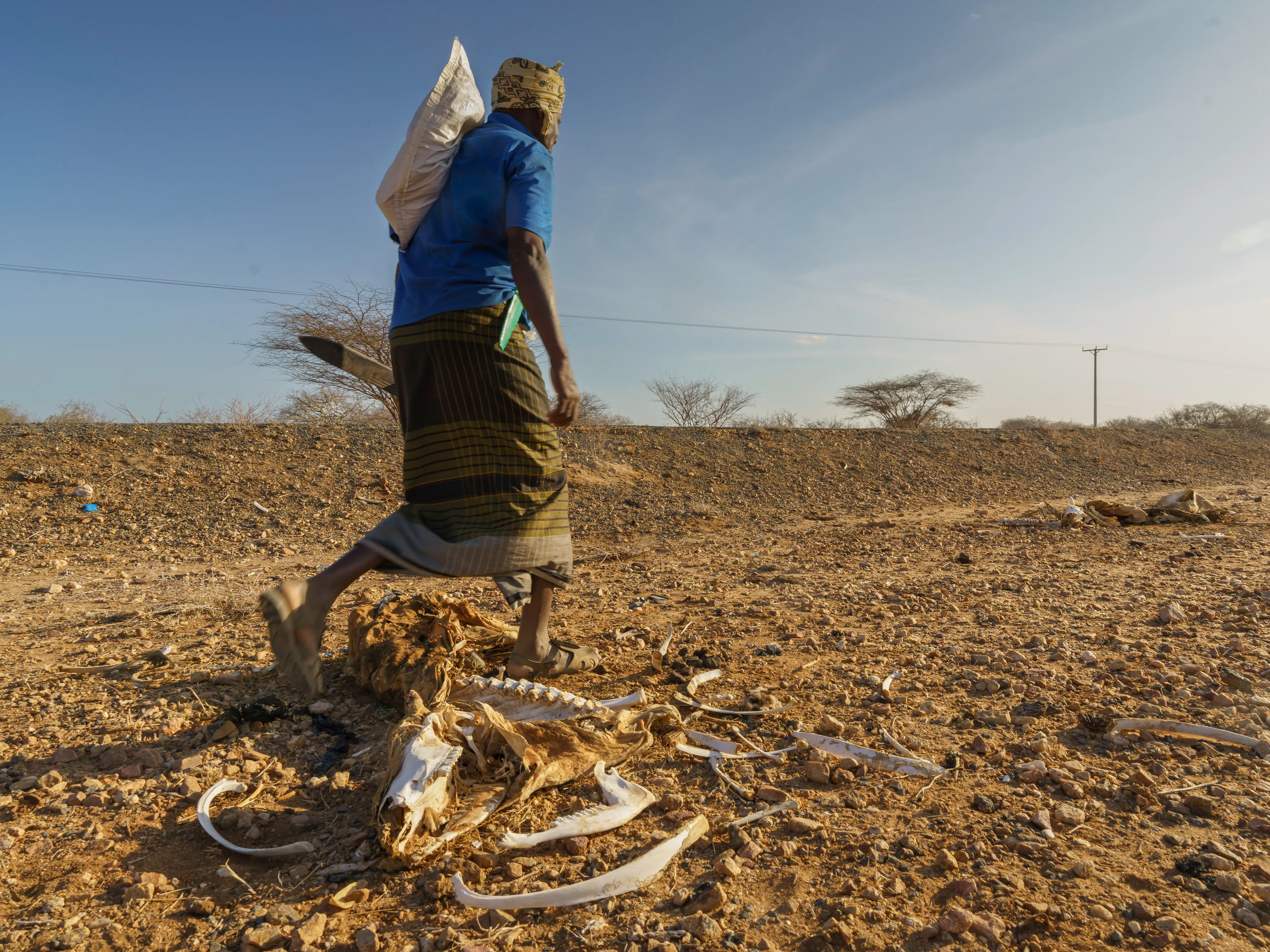Climate Change Triggered Heatwaves: The Urgent Warning to Humanity of Impending Extinction; In Short Term, What Is The Direction We Are Headed – Civil Wars?
As temperatures rise across the globe, heatwaves are becoming increasingly common and severe, posing a threat not only to human health but also to our very existence. India, one of the world's most populous countries, has experienced its fair share of heatwaves, with the country facing multiple heatwaves this year. The impact of climate change, including the rising temperatures and the associated effects on resources, can exacerbate existing social, economic, and political tensions and potentially lead to conflicts, including civil wars. The impact of these heatwaves on the country's population is severe, and the relentless exploitation of nature and no heed to climate change - may just bring humanity to its knees!

Nature is warning us of the dire consequences of our actions on the planet. Climate change caused by human activity is the main culprit behind the rising temperatures and the increasing frequency and intensity of heatwaves.
We have been burning fossil fuels, deforesting land, and polluting our water and air for decades, all in the name of progress and development. The result is that we have created a planet that is increasingly hostile to human life.
The impact of heatwaves on human health is severe, with heat-related illnesses and deaths becoming more common every year.
During the 2015 heatwave in India, over 2,500 people died due to heatstroke and dehydration.
The 2019 heatwave was even more severe, with temperatures exceeding 50°C in some parts of the country.
Ninety people died in 2022 due to heatwave spells in India and Pakistan.
This year 13 people have been reported to have died from heatstroke.
The impact of these heatwaves is not limited to human health alone. They also have severe implications for agriculture, water resources, and biodiversity.

Not A Healthy World But A Dying World
The impact of climate change is not limited to heatwaves alone. We are seeing the consequences of climate change in the form of extreme weather events, melting glaciers, rising sea levels, and more.
The Intergovernmental Panel on Climate Change (IPCC) has warned that we have only a limited window of time to prevent catastrophic climate change. If we continue with our current trajectory, the consequences could be severe and irreversible.
We are reaping what we sow. Our actions have led to the current state of the planet, and we are now facing the consequences. We have pushed plants and animals to the brink of extinction, destroyed natural habitats, and polluted our water and air. We have disrupted the delicate balance of nature, and now we are paying the price.
Will Humanity Survive?
The future of humanity is uncertain. If we continue with our current trajectory, the consequences could be severe and irreversible. We need to take immediate action to reduce our carbon footprint, protect natural habitats, and restore the balance of nature. We need to work together to find sustainable solutions that will ensure a better future for ourselves and for future generations.
According to the Fifth Assessment Report of the Intergovernmental Panel on Climate Change (IPCC), if greenhouse gas emissions continue to rise at the current rate, global temperatures are projected to increase by 1.5°C to 4.5°C by the end of the century, compared to pre-industrial levels. The temperature rise could be much higher in some parts of the world, such as the Arctic.

India The Center Of The Melt
In India, the temperature rise is expected to be higher than the global average. According to the Indian Network for Climate Change Assessment (INCCA), average temperatures in the country could rise by 1.7°C to 2.2°C by 2050, compared to the baseline period of 1970-2000.
The frequency and intensity of heatwaves are also expected to increase.
If temperatures were to rise at the current pace, it would have severe implications for resources needed to live as we do currently. The demand for energy, water, and food would increase, putting pressure on resources that are already scarce in some parts of the world. In India, for example, water scarcity is already a major issue, and rising temperatures would exacerbate the problem.
Increased demand for air conditioning during heatwaves would also put pressure on energy resources, leading to an increase in greenhouse gas emissions and further exacerbating the problem of climate change.
The impact on agriculture would be severe, with rising temperatures leading to crop failures and food shortages. This would have a domino effect on the economy, leading to rising food prices and increased poverty.
To live sustainably in a world with higher temperatures, we would need to adopt more sustainable practices in every aspect of our lives. We would need to reduce our carbon footprint by adopting renewable energy sources, reducing our reliance on fossil fuels, and adopting energy-efficient practices.
We would also need to adopt more sustainable practices in agriculture, such as reducing water use and adopting drought-resistant crops. The future of humanity depends on our ability to adapt to a changing climate and adopt more sustainable practices.

Could This Lead To Civil Wars?
The impact of climate change, including the rising temperatures and the associated impacts on resources, has the potential to exacerbate existing social, economic, and political tensions and could potentially lead to conflicts, including civil wars.
As resources become scarcer, competition for access to these resources could increase, leading to conflicts over land, water, and food. In regions where these resources are already scarce, such as in parts of India and other developing countries, the impact of climate change could worsen the situation, potentially leading to social unrest and conflicts.
Furthermore, climate change can exacerbate existing social and economic inequalities, leading to further unrest and conflict. The impacts of climate change, such as crop failures and food shortages, can disproportionately affect the poorest and most vulnerable populations, further widening the gap between the rich and poor.
While the potential for civil wars to result from climate change and its associated impacts is a concern, it is important to note that it is not inevitable. The severity of the impact of climate change can be mitigated through actions to reduce greenhouse gas emissions and adaptation measures to build resilience to the changing climate.
Additionally, efforts to address the underlying social and economic factors that drive conflicts, such as poverty and inequality, can also help reduce the potential for civil wars.
In conclusion: Time is running out, and so are the chances!




